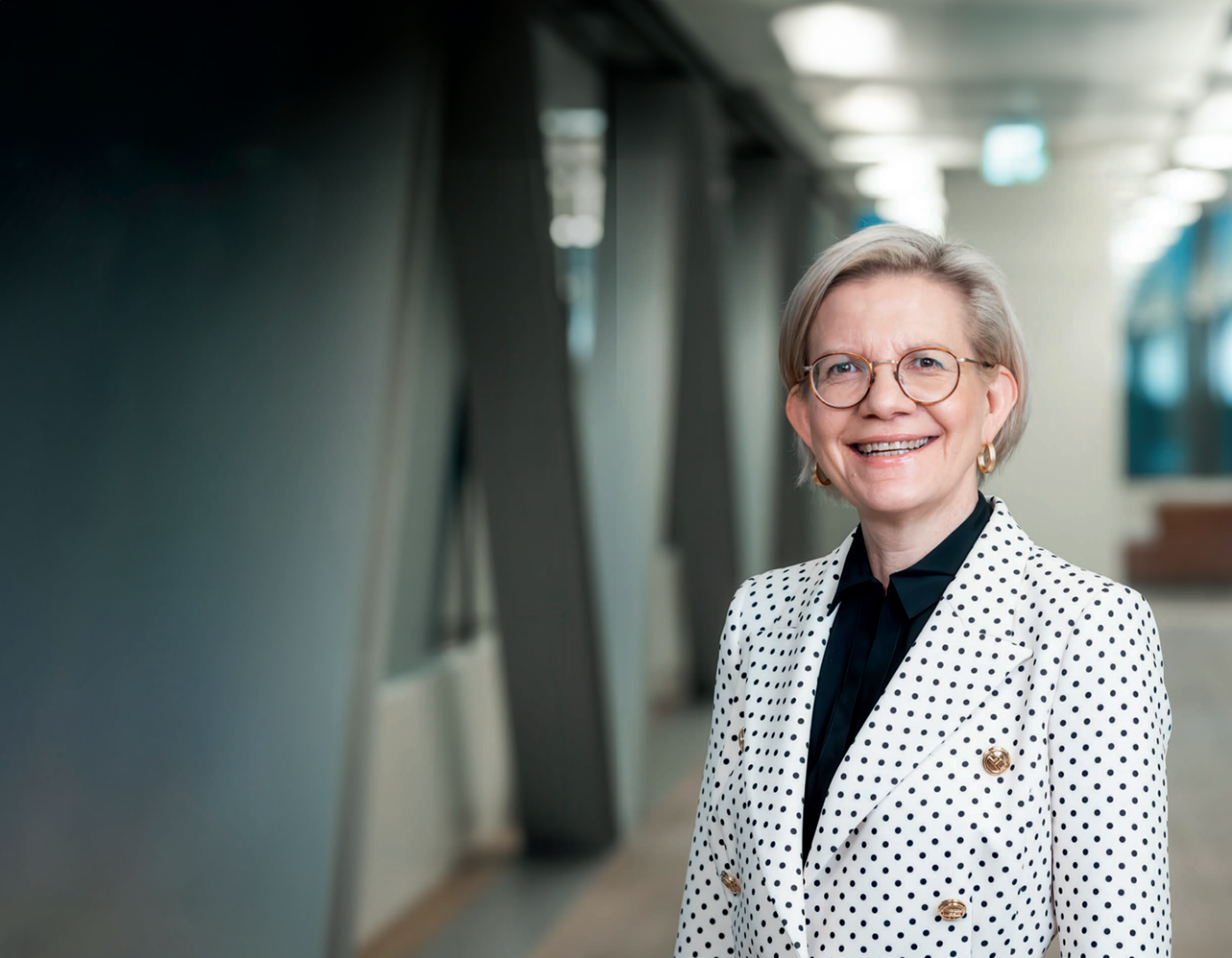
The impact that an individual teacher can have on a student can be life-altering, and lifelong, Carla De Geyseleer observes in an eloquent testimony to the faculty at IMD, where she studied for the EMBA in the early 2000s. “I don’t think that people who are involved in education really realize how important they are for individuals.”
Her sentiment echoes that of the great French intellectual Albert Camus who, upon being awarded the Nobel Prize for Literature in 1957, penned a letter of gratitude to his inspirational school-teacher Louis Germain from three decades earlier, telling him how he as a writer had “never stopped being your grateful pupil”.
Carla mentions Dominique Turpin, for insights into marketing, the late Stuart Hamilton, the finance professor; and the fascinating and impactful professor in organizational behaviour George Kohlrieser, while emphasizing that the whole faculty left a positive impression. Much of the richness of the education at IMD, she says, lay in deepening her learning, simultaneously about how commercial organizations and markets behave, and about herself as a person. She learned that she was a perfectionist by nature. This is a natural strength for a finance professional, while benefiting from a certain adaptability and decisiveness when dealing with more ambiguous situations as an executive where precise answers cannot be found.
The intensity of the learning, she says, was such that “you reflect a lot, you learn a lot about yourself. You just become more mature, you learn to set priorities, you learn to deal with ambiguity, because life is not black and white. You simply become a better person.”
She credits the leadership development at IMD as fundamental to her subsequent career progression, securing successive promotions to become CFO at major companies, including SGS and Volvo Cars. She is the Group CFO of Schindler, a leading global provider of elevators and escalators and related services headquartered in Switzerland, and a non-executive director at Hilti, a multinational company developing and manufacturing goods and services for the construction industry, based in Liechtenstein.
“Everybody has a backpack with positive and negative experiences”
“What I was underestimating, when I chose the program, was what I would call the personal development. It turned out to be a big surprise and a big success.”
Such rounded leadership abilities have become even more important in the two decades since she studied for the EMBA. The CFO role became bigger than ever before, as CFOs have taken on additional responsibilities, including procurement, ESG, M&A, investor relations, and strategy deployment. “The role has completely changed from what was the old, I would describe as advanced accounting role, to where you are now a complete co-pilot to the CEO.”
One of the most cherished memories of her time at the Lausanne campus was the graduation ceremony. She was joined by her daughter and husband, who had been tremendously supportive of her at the time when he had a full-time job in Belgium. Their daughter was only three years old when Carla started the program while holding a full time job, so there were many Friday and Sunday evening flights.
Her mother also contributed significantly with childcare. “You can’t do it [this kind of course] if you don’t have the support,” she says. Now the daughter is in her early 20s and recently graduated.
Carla is from a modest background, financially, and from a young age was astute enough to recognize that education was the route to more opportunities, strongly supported by her mother. In common with other alumni, she points to the significance of an exercise in personal development in the EMBA where you describe a personal lifeline, identifying key experiences in your life, positive and negative, that shape your personality, outlook and capabilities. Not only
does this enhance self-awareness but, just as importantly, sensitivity to the unique personality and experience of everyone in your team.
“Everybody has a backpack with positive and negative experiences … Leading, for me, is not about your leadership style, it’s about changing and adapting your leadership style to the people that you have in the team so that you can get the maximum performance out of them while remaining engaged and motivated.”
She smiles as she recalls how Professor Preston Bottger encouraged her to construct a paper model bus, to remind her of the metaphor of “getting everyone on the bus before it leaves” as you embark on an initiative, ensuring the team is engaged. She did so, and actually placed it on her desk. Moreover, it really helped.
As a leader in a global corporation, she notes with concern the opposition to economic globalization in recent years, given the opportunities it has created for millions of people. Global trade is the base for value creation and enables closer relationships and more respectful understanding of different cultures.
“What I was underestimating, when I chose the program, was the personal development”
In an age of populist politics, the reflective, empowering leadership style nurtured at IMD is far from universal. It is quieter but a potentially powerful force for good. Carla is a role model: composed, modest and precise in speech; a timely reminder that, with the help of leadership development, conscientious perfectionism is a strength.


